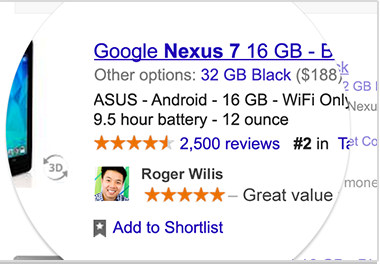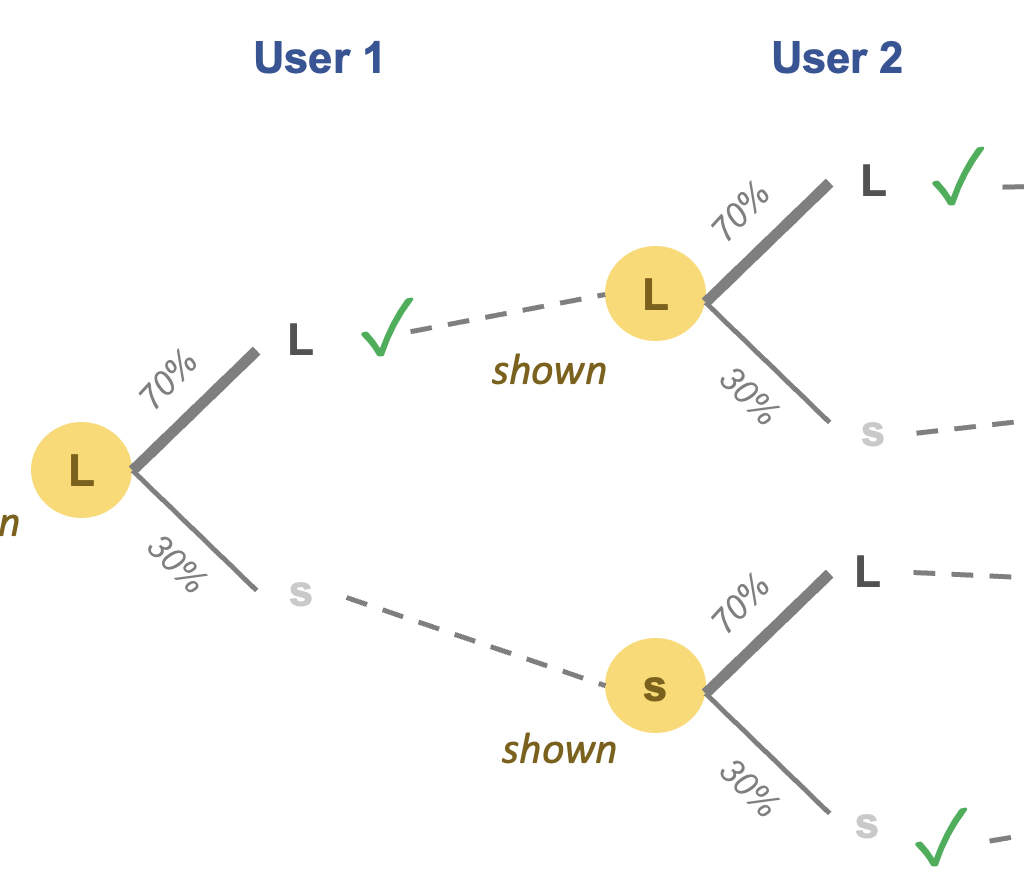Know your data 15: How to get robbed by Google

You walk into Walmart, and there is a big notice to customers, informing you that by walking into the store, you consent to being continuously photographed, and being used as a spokesperson for any brands that are carried in the store. You will not be compensated for endorsing these brands because Walmart opens its doors to you without an entrance fee. You should feel blessed that Walmart won’t charge you an entrance fee—in fact, Walmart promises never to charge that. It's none of your business that the brands are paying Walmart for your endorsements.
You will not be notified which brands you are endorsing, when you are endorsing them, how you are endorsing them, or to whom your endorsement will be peddled. If you find the preceding terms distasteful, you can exercise your all-American right to shop elsewhere. Before you turn away, give a little thought to those everyday low prices.
Next week, the big notice will be removed because by shopping here once, you have issued a blanket consent. Every time you walk into the store, you are renewing your consent.
You won't see this notice at Walmart (just yet), but last week, Google announced that this is how they will treat you from now on (link). To Google’s credit, they are simply copying what Facebook has been doing for some time. Now that Google’s doing it, it must not be evil.
***
Next, pity the unsuspecting marketer who spends real money on Google's "shared endorsements" (or "sponsored stories" to use Facebook's terminology.) According to the New York Times reporter:
Such product endorsements, especially from friends and acquaintances, are a powerful lure to brands, replicating word-of-mouth marketing on a broad scale. Social advertising — which includes a wide range of ads, including endorsements — is a $9.5 billion business, according to eMarketer, accounting for 8 percent of digital ad spending.
Most of that money is being poured down the drain. These marketers are getting robbed by not thinking about the counterfactual! (I explain this in detail in the marketing chapters of Numbersense. Learn more about the book here.)
"Word of mouth" operates in the shadows but marketers know it's happening. They even attempt to quantify it through something called the "Net Promoter Score," (link) computed based on answers to the question of whether one would recommend the brand to a friend.
But word of mouth has always been free marketing. This was happening before Google or Facebook even existed. Why should marketers pay social media companies for something that is free? Are they just getting robbed?
***
Here is an example of the kind of ads that would show up featuring your friend or acquaintance.

If Roger Willis is someone I know and trust, such as my Dad or a close friend, I don't need this ad to tell me the obvious. If he is an acquaintance, not a friend, I'm unlikely to buy something based on an ad like this. If he is a friend of a friend, I'm even less likely to care.
Saying the effect is small is not saying no one will ever be influenced. In my view, marketers should not take the bait.



